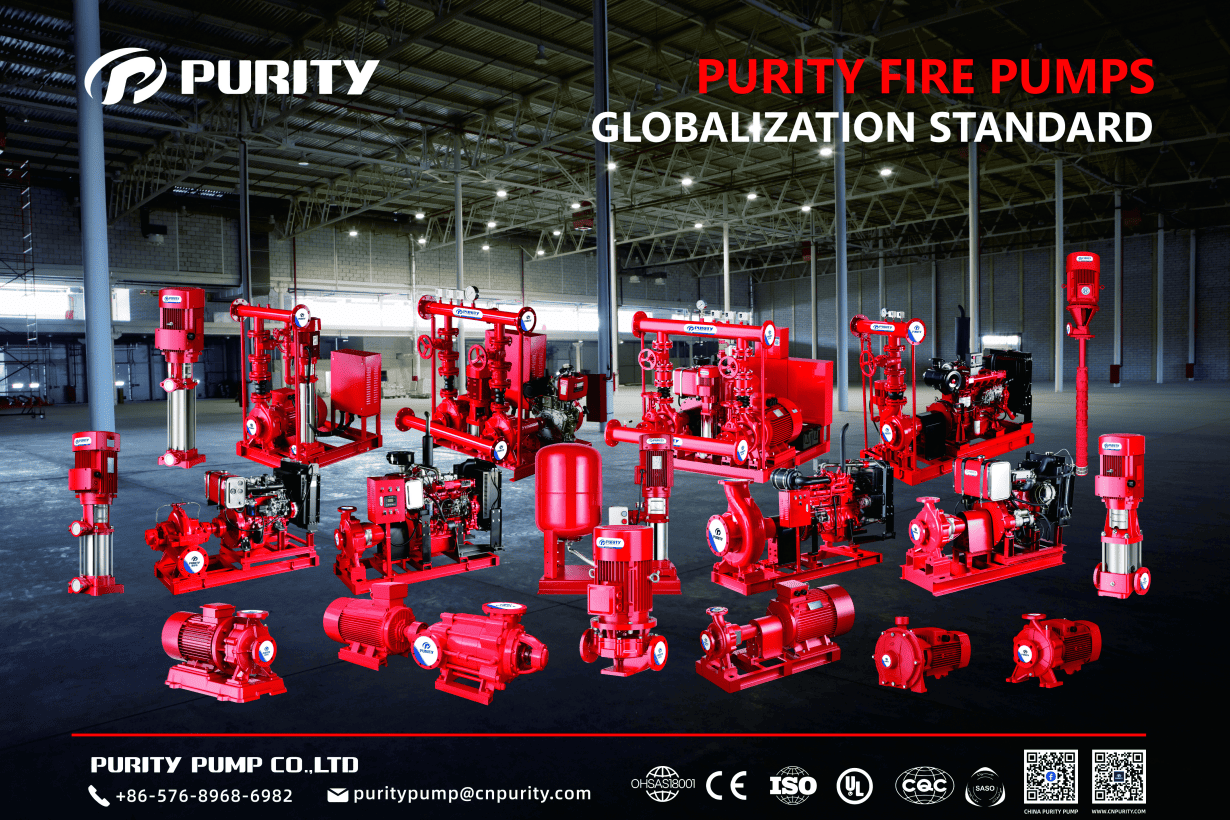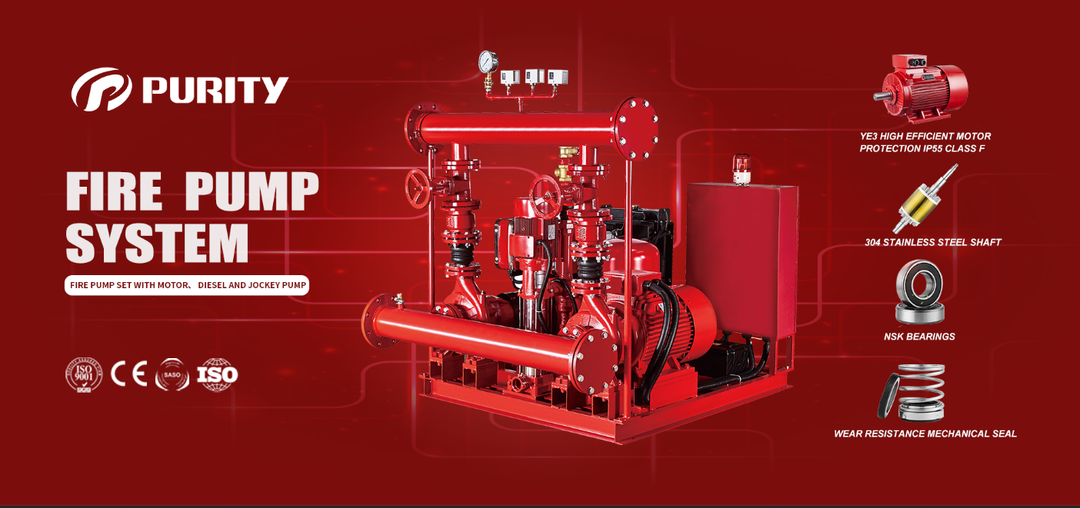A fire pump is often considered the heart of a fire protection system. Its primary role is to boost water pressure and flow so that sprinklers, hydrants, and standpipes receive sufficient water during a fire. Without it, many high-rise buildings, warehouses, factories, or areas with low municipal water pressure would struggle to ensure effective firefighting.
When a fire occurs and system pressure drops, the controller automatically starts the pump. Driven by an electric motor or a diesel fire pump, the impeller spins rapidly, creating centrifugal force that increases water pressure. The pressurized water is then delivered through the fire protection network, ensuring reliable suppression capability.
Key features include:
Automatic start-up when pressure falls.
Continuous standby mode to guarantee quick response.
Dual drive options (electric or diesel) for reliability.
A diesel fire pump is particularly valuable in regions with unstable electricity, as it can operate independently using fuel and battery ignition.
Several designs of fire fighting pumps serve different applications:
In-line pump: Compact and space-saving, ideal for modern buildings.
Vertical turbine pump: Suited for deep wells or reservoirs.
Horizontal split case pump: Provides high flow rates and easy maintenance, popular in large facilities.
Multistage pump: Designed for high-rise buildings needing very high pressure.

Figure | Purity fire fighting system full series
Installing a fire pump system is not enough; regular maintenance is essential. According to NFPA 25:
Weekly: Check batteries, control panels, and automatic start.
Monthly: Test run for 10 minutes (electric) or 30 minutes (diesel) to confirm smooth operation.
Annually: Full performance testing, instrument calibration, impeller inspection, and electrical system checks.
Timely repair of leaks, vibration, or faults ensures the pump performs reliably in real emergencies.
Proper upkeep of a fire pump brings multiple benefits:
Compliance: Meets NFPA and local fire codes.
Safety: Ensures sufficient water supply during fire emergencies.
Reliability: Guarantees immediate start-up when needed.
Cost-effectiveness: Extends equipment life and reduces emergency repairs.
Among global fire pump manufacturers, Purity provides advanced solutions. Its PEDJ diesel fire pump system delivers strong reliability with features designed for demanding conditions:
1.Smart time settings – including delay, preheating, start cut-off, and rapid running.
2.Flexible operation – manual, automatic, or remote control modes with easy switching.
3.Backup during power failure – the diesel engine can rely on battery ignition to keep the system running when electricity is lost.
These advantages make the PEDJ unit especially suitable for remote areas or regions with weak power supply, providing continuous protection when it matters most.

Figure | Purity PEDJ diesel fire fighting system
Choosing the right fire pump manufacturers ensures quality and compliance. Purity, with over 15 years of experience, has earned international recognition, with some models UL certified. With its independent factory and R&D team, the company is dedicated to durability, energy efficiency, and innovation. Purity is also actively seeking global partners to expand its network.
So, what is the function of a fire fighting pump? Its role is to guarantee a reliable, high-pressure water supply for firefighting systems. Whether powered by electricity or a diesel fire pump, it ensures sprinklers, hydrants, and standpipes operate effectively.
Models like the Purity PEDJ diesel fire pump unit highlight how advanced features such as smart control, remote operation, and backup power can make a life-saving difference. With trusted fire pump manufacturers and NFPA-compliant maintenance, fire pump systems truly serve as the lifeline of building safety.